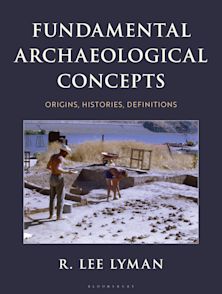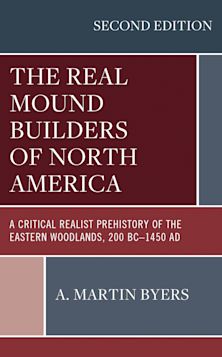African Connections
Archaeological Perspectives on Africa and the Wider World
- Textbook
African Connections
Archaeological Perspectives on Africa and the Wider World
- Textbook
This product is usually dispatched within 2-4 weeks
- Delivery and returns info
-
Flat rate of $10.00 for shipping anywhere in Australia
Description
From the exodus of early modern humans to the growth of African diasporas, Africa has had a long and complex relationship with the outside world. More than a passive vessel manipulated by external empires, the African experience has been a complex mix of internal geographic, environmental, sociopolitical and economic factors, and regular interaction with outsiders. Peter Mitchell attempts to outline these factors over the long period of modern human history, to find their commonalities and development over time. He examines African interconnections through Egypt and Nubia with the Near East, through multiple Indian Ocean trading systems, through the trans-Saharan trade, and through more recent incursion of Europeans. The African diaspora is also explored for continuities and resistance to foreign domination. Commonalities abound in the African experience, as do complexities of each individual period and interrelationship. MitchellOs sweeping analysis of African connections place the continent in context of global prehistory and history. The book should be of interest not only to Africanists, but to many other archaeologists, historians, geographers, linguists, social scientists and their students.
Table of Contents
2 Preface
3 1. Introducing Africa: Definitions, Routes, Resources and Interactions
4 2. The Development and Spread of African Farming Systems
5 3. The Nile and Red Sea Corridors
6 4. Africa in the Indian Ocean World System
7 5. Africa's Other Sea: The Sahara and its Shores
8 6. Africa's Opening to the Atlantic
9 7. Out-of-Africa III: The Archaeology of the African Diaspora
10 8. Reconnecting Africa: Patterns, Problems and Potentials
11 References
12 Index
13 About the Author
Product details
| Published | 24 Jan 2005 |
|---|---|
| Format | Paperback |
| Edition | 1st |
| Extent | 328 |
| ISBN | 9780759102590 |
| Imprint | AltaMira Press |
| Dimensions | 219 x 142 mm |
| Series | African Archaeology Series |
| Publisher | Bloomsbury Publishing |
Reviews

ONLINE RESOURCES
Bloomsbury Collections
This book is available on Bloomsbury Collections where your library has access.



































